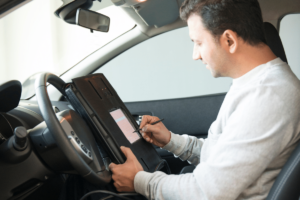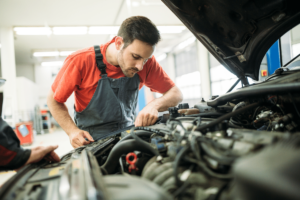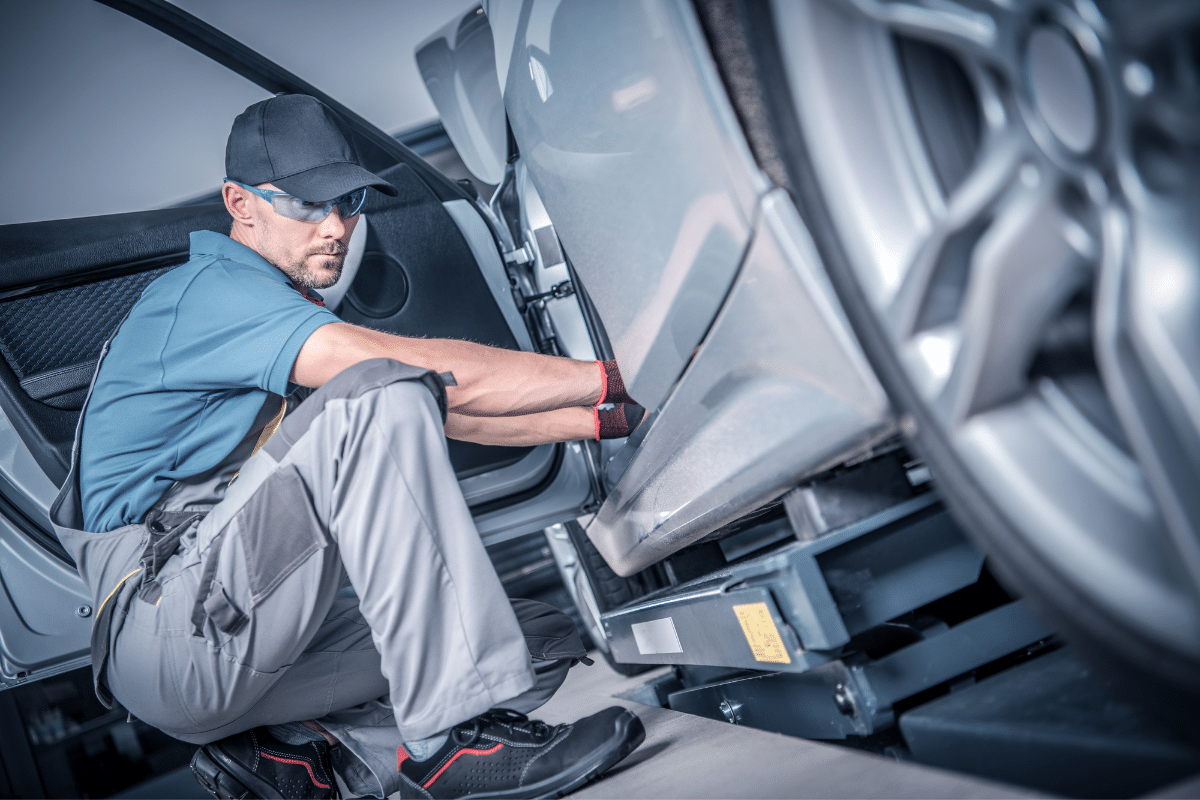
Why E-commerce didn’t expend as much as expected in Brazil Categories: 2021, News Timelines: Brazil
Announcement Date : 8 June 2021
E-commerce is very strong in Brazil, but when it comes to the automotive aftermarket, it falls far below the expectations. With more than 20 years of experience of monitoring the Brazilian market, GiPA can share an explanation for this.
Among the markets monitored by GiPA, Brazil is the only one where the share of drivers that use the Internet for car related themes is above average while the level of purchase is below average. This shows clearly that e-commerce has a great untapped potential in Brazil, examining the barriers will help determine where the expansion will come from.
Every year, GiPA asks 4,000 drivers and 2,000 aftermarket professionals (repairers and wholesalers) about their use of the Internet and study their reasons for not purchasing car parts or accessories online.
Among drivers, proportion of online purchases is five times lower than online searches.
One of the first reasons why drivers do not purchase online is that they are not used to purchasing parts in the first place. Indeed, the rate of Do-It-Yourself (DIY) is very low in Brazil; Buy-and-Fit (the driver buy the product and has it fitted by a professional) is a marginally higher (especially for complex operations), but mainly relates to technical parts, which are harder to find online.
A low rate of DIY is typical in markets where the labour cost is low: in Brazil, despite the deflation of prices, it is always possible to find a cheap repairer in the independent market.
Considering this cultural behaviour, it is not a surprise that the first reason why the drivers say they do not purchase parts on the Internet is because they do not need or do like to do so.
But this is not the only reason. Our results show that the potential of e-commerce in the Brazilian aftermarket is higher than its real extension. The second reason most drivers mentioned for not purchasing online is that they experiment difficulties in identifying the right part for their car, followed by trust issues quality of the part/ fraudulent seller).
The matter is easy to understand when we look at the offer: the driver’s top of mind website to purchase parts is Mercadolivre, a non-specialized regional online marketplace based on the eBay model.
As eBay, it was originally destined to operate in the second-hand goods market, and despite the addition of official stores from car makers and part manufacturers, is still not designed to help the driver to find and identify parts, especially when compared to other ecommerce leaders that have innovated their offer in proving part references linked to vehicle registration plates, easing the part finding process for drivers.
Specialised sites exist, such as Misterauto (e-commerce player integrating a search tool based on make/model/year/engine), but are not known among drivers.
Only one in ten orders are placed through internet/extranet platforms by the IAM players.
The situation is not very different among professionals from the independent market (IAM – repairers and wholesalers). Only one in ten orders are placed through internet/extranet platforms by the IAM players. Even the channels with a higher share of networks (branded tyre stores and gas stations) have less than 25% of their orders from the internet.
The main reason mentioned by the professionals seems to be cultural: they favour direct contact. But one can wonder if this is a cause or a consequence… Removing other obstacles in purchasing online could help change the professionals attitude towards it.
Therefore, let’s focus on what can change, presuming that pulling down the barriers can be the trick to a deeper shift in behaviour.
Actually, most of the barriers GiPA identified can be removed through improvement of the processes. The main barriers can be divided in three interlinked categories: time, efficiency and trust.
The major concern mentioned by most of the professionals is that the delivery takes more time when the order is placed through the Internet. It is important that the providers implement a process that is efficient and reassuring for clients.
Regarding time, more than a third of professionals says it takes longer to place the order through an internet/extranet platform. Unlike other countries, where most of the distributors platforms are merged in common systems, in Brazil, each one (and there are a lot) has its own platform, which is a challenge for the clients who must switch from one system to another.. This process is time consuming and frustrating for those using the systems, which will limit the usage.
The next important factor is trust/efficiency issue. This is similar to the drivers’ situation: a third of professionals says the internet doesn’t allow them to verify the part they are purchasing is the right one.
Finally, another important reason mentioned for not purchasing through an internet/extranet platform is simply that… the supplier doesn’t offer this solution!
To conclude t, for both drivers and professionals, the market is not mature enough, in terms of offer, and to guarantee an online purchasing experience able to convince the end users. The challenge doesn’t seem unachievable, and it looks like that once an attractive offer is implemented by a big player, the potential is high, and behaviours may start to change.
With 20 years of presence in Brazil, GiPA is offering strong analysis of the local aftermarket, as well as in other 40 countries. Please contact us if you need any further information/data.
















